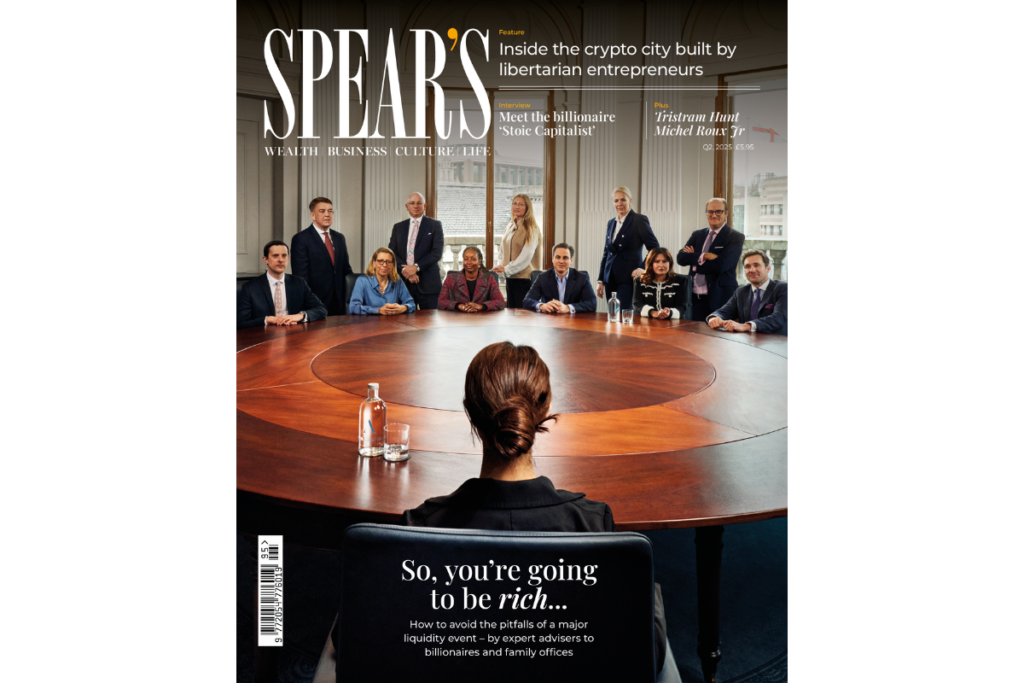
Proactive protection
SIR – Robert Jackman’s article on reputation insurance (Briefing, Spear’s 94) reflects a critical shift in the approach high-net-worths are taking to reputation management – gone are the days of a reactive approach to such threats; proactive protection is now essential.
Prominent individuals and families face evolving and increasingly sophisticated reputational threats. Clients are now willing to invest time and money to ensure that they have tailored safeguards and strategies in place should such risks emerge. In the face of a crisis, time is of the essence, and having an expert team ready to respond immediately offers a huge advantage.
The emergence of a tailored insurance offering is the logical next step in this evolution. It demonstrates that a proactive approach is now firmly on the agenda, and I suspect that we’ll see more insurers and reputation advisers (whether digital, legal or PR) joining forces to offer this tailored service to HNWs and their businesses.
[See also: What is a reputation manager?]

The human touch
SIR – I read with interest your article on Oskar, the proptech platform countering the ‘Wild West’ of super-prime property deals (Briefing, Spear’s 94).
Technology always disrupts industries eventually, but not always for the better. The super-prime property market thrives on relationships, intuition and the nuanced art of deal-making – qualities that can’t be replicated by an app like Oskar.
Standardising such a bespoke industry risks stripping away its human touch. Clients often benefit from the agility of informal networks, where opportunities arise through personal connections… not algorithms. Oskar’s vetting process may create artificial barriers, excluding unconventional yet effective operators. Moreover, centralising sensitive data could pose security risks. In seeking to ‘professionalise’ the sector, Oskar may inadvertently dilute the creativity and flexibility that have long been its competitive edge.
Not every problem requires a tech solution – sometimes, trust and discretion work best. I’m hoping the same logic continues to apply to the legal sector.
[See also: Best property brokers]
Primed to flourish
SIR – As a real estate lawyer operating primarily in the prime central London market, I was interested to read your article on Queensway’s £3 billion revamp (Briefing, Spear’s 94). It’s always exciting to see an emerging area disrupting the traditional boundaries of the prime central London heartland.
The buzzword here seems to be ‘local’, with the expectation that the majority of the apartments in these new high-profile developments such as the Whiteley and Park Modern will be lived in as homes, rather than being occupied only occasionally. It looks like a bold response to so-called ‘dark’ developments that have sprung up in more traditionally prime areas, where occupancy rates can be low and the vibrancy of the local area can suffer as a result.
Queensway may have been an overlooked enclave compared to its more glamorous neighbours, but its central location is excellent; the regeneration of its public spaces and the arrival of these new developments are helping to put it on the map. It will be interesting to see how this latest chapter of the area’s history unfolds.

Moving goalposts
SIR – I read with interest Robert Amsterdam’s article on changing tax laws in Spain (Spear’s 94), and it’s my opinion that the UK appears to be heading in a similar direction, albeit less extreme. The non-domicile regime was fundamentally designed to attract overseas individuals to live, invest and contribute to the UK economy. However, the current political and fiscal climate has led to a shift in tone, where non-domiciled individuals – who have simply followed a system Parliament introduced – are now being portrayed as tax dodgers.
Changing tax rules is one thing, but vilifying those who complied with them is deeply unfair. Such rhetoric risks undermining the UK’s credibility as a stable jurisdiction for wealth and investment. If the trend continues, the long-term consequences could be a decline in global confidence, ultimately making the UK a less attractive destination for international talent and capital.
[See also: The best trusts, structuring and offshore experts 2024]
Contact us
To submit a letter for publication in Spear’s, please email alice.coleman@spearswms.com. All correspondence will be considered for publication unless otherwise stated.
These letters first appeared in Spear’s Magazine Issue 95. Click here to subscribe








